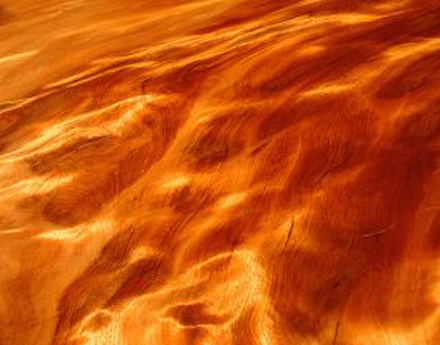
A Northland conservation group has failed in a court challenge over the regulation of swamp kauri exports. Source: Radio NZ
The High Court rejected arguments by the Northland Environmental Protection Society (NEPS) that the Ministry for Primary Industries failed to apply the Forests Act and allowed the highly-priced timber to be exported unlawfully.
NEPS asked the court to declare that swamp kauri table tops and carved logs could not be exported because they were not finished objects as defined by the Forests Act.
It asked the court to declare swamp kauri a protected New Zealand object under Culture and Heritage legislation.
NEPS argued exporters sent slabs and logs of swamp kauri out of the country labelled as table tops and carvings. It said overseas buyers then processed the kauri or sold it as raw timber.
The Forests Act prohibits the export of most native timber, but finished or manufactured products can leave the country without inspection or approval.
Justice Kit Toogood said although ancient swamp kauri was an indigenous timber, the primary aim of the Forests Act was to protect living indigenous forests.
“[It] does not call for pedantic scrutiny in MPI’s decision-making about the export of ancient swamp kauri,” he said.
The judge declined to make any of the declarations NEPS sought.
“If it is thought desirable to impose stricter limitations on the export of finished products derived from ancient swamp kauri in order to retain the stock of such taonga in New Zealand, further and more focused legislation will be required,” he said.
The decision shocked NEPS members.
The society’s president, Fiona Furrell, said the group’s lawyers were considering the judgement and an appeal was likely.
Justice Toogood found table tops without legs were not illegal exports, and if overseas buyers turned them into something else that did not, in itself, prove the export was unlawful.
The evidence was that swamp kauri table tops could be more than 10 metres long; some had only basic levels of processing and they were generally exported without legs, or holes for legs.
There was evidence that the slabs were re-processed in China and other countries.
“I accept the submission by MPI that Parliament could not have intended that exports would be prohibited if an overseas purchaser retained the ability to modify a product, ” the judge said.
NEPS challenged the export of “temple poles”, which were typically entire logs with surface carving or etching.
“Some might consider it surprising, at first blush, that an oiled or lacquered log would be used as an ornament and approved for export on that basis,” Justice Toogood said.
He noted the observations of an MPI officer, who said the log in question was meticulously oil-polished and that “a lot of time had clearly been put into it”.
MPI sought advice from Māori carvers about another etched log. It was advised it was unusual, but could not be ruled out as a contemporary carving.
NEPS argued such logs were sold in the knowledge they would be milled overseas.
Justice Toogood said MPI had offered a voluntary inspection and approval process for exports of swamp kauri since 2011; its officers had “vigourously debated” the proper definition of a finished or manufactured object; and MPI had since improved its monitoring of exports.
In 2015, MPI revised its operations, increased inspections and employed an additional forestry officer in Whangarei.
“MPI now acknowledges that officials may have previously adopted an approach based on an undue readiness to accept as credible… exporter statements about the intended use of the exported products . I am satisfied …they no longer consider it acceptable to accept at face value the representations of exporter about the degree of processing …and the intended use of the products overseas, ” Justice Toogood said.





